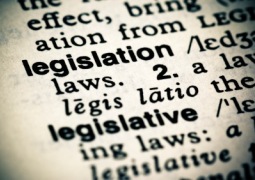
Parliament, Tuesday, 13 March 2018 – The Standing Committee on Appropriations highlighted the importance of educating communities about the significance of the Division of Revenue Bill, having received only one submission during public hearings conducted today.
The Chairperson of the Committee, Ms Yvonne Phosa, said the constitutional provision of public participation is an important step in scrutinising the Division of Revenue Bill. “The Constitution makes provision for public participation in legislatures and this is also part of Parliament’s core business. The intention of public participation provisions in the Constitution is to influence government policy outcomes, so that they reflect the will of the people. Therefore, a vibrant civil society plays an indispensable role in a democracy and to achieve this, we have to educate the broader society on the Division of Revenue Bill,” Ms Phosa explained.
The submission received from the Equal Education (EE) advocacy group raised concerns with the funding available to basic education, stating that the 6.93% increase between 2017/18 and 2018/19 is barely enough to keep up with the needs in the Department of Basic Education.
While noting consistent under-spending of school infrastructure grants, EE argued that funding cuts of R7 billion over the medium-term economic framework period is not a solution. It advocated for support to provinces on how to spend their budgets more effectively.
Ms Philile Ntombela-Masson, a researcher at EE, said: “Treasury’s intervention should incentivise transparent and effective infrastructure planning, and must include the creation of stronger financial mechanisms to monitor and sanction implementation agents.”
EE further recommended that the equal share formula take into consideration the factors contributing to the high cost of rural education, which is influenced by historic underfunding of former “homelands”, infrastructural disadvantages and poverty linked to rurality, among other things.
“Treasury should explore the possibility of adding rural-focussed indicators to the provincial equitable share formula to further strengthen the equity of intergovernmental transfers,” said Ms Nurina Ally, Executive Director at the EE Law Centre.
Following a vibrant discussion around funding of schools in rural areas, and noting the failure of the water and sanitation norms and standards introduced in 2013 and the need for an increase in conditional grants for learner transport, the standing committee called on National Treasury to note EE’s concerns and recommendations. They will also form part of the committee’s report on the 2018 Division of Revenue Bill.
ISSUED BY PARLIAMENTARY COMMUNICATION SERVICES ON BEHALF OF THE CHAIRPERSON OF THE STANDING COMMITTEE ON APPROPRIATIONS, MS YVONNE PHOSA.
For media enquiries or interviews with the Chairperson, please contact the committee’s Media Officer:
Name: Felicia Lombard
Parliamentary Communication Services
Tel: 021 403 8285
Cell: 081 548 7011
E-mail: flombard@parliament.gov.za

